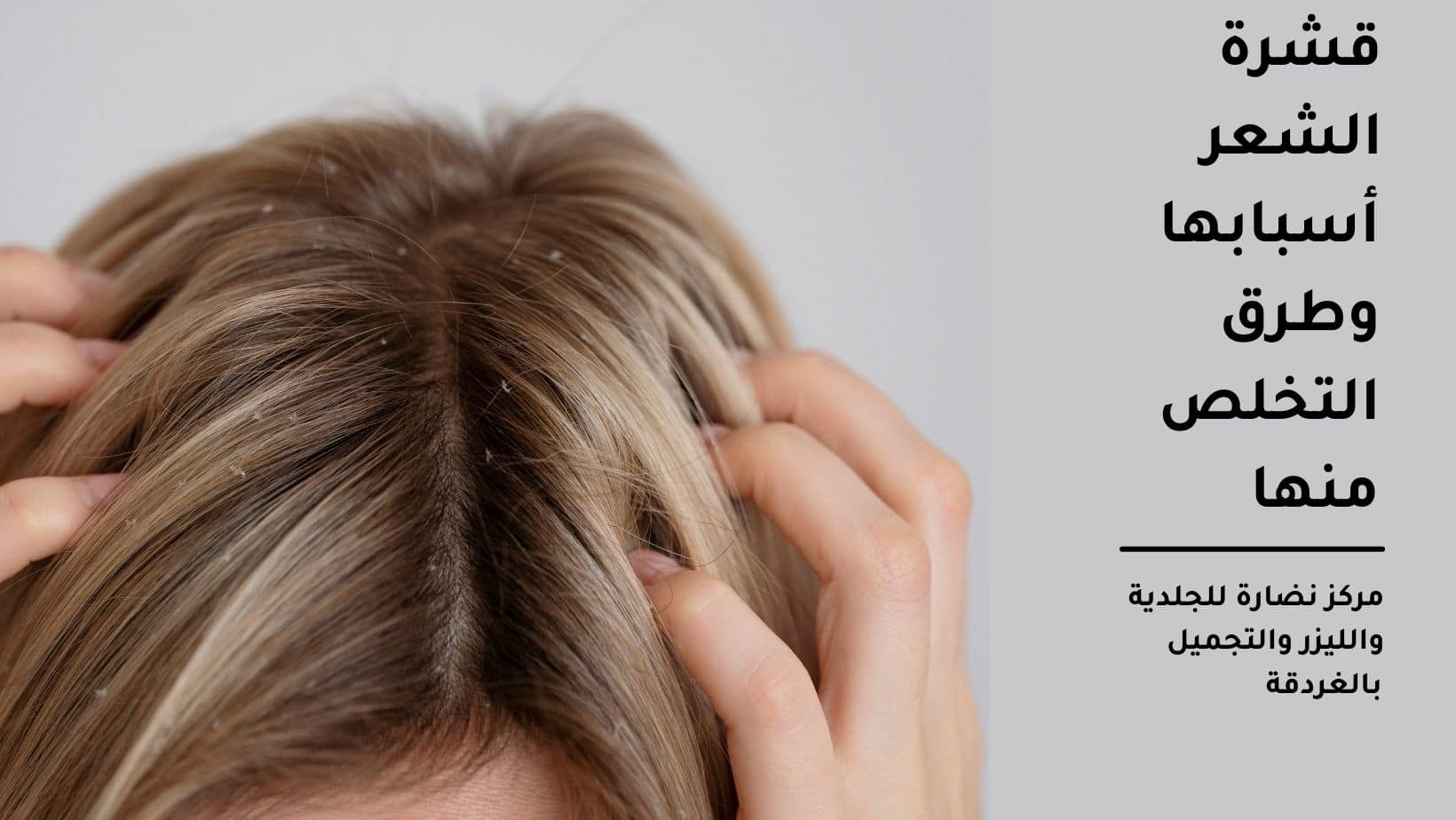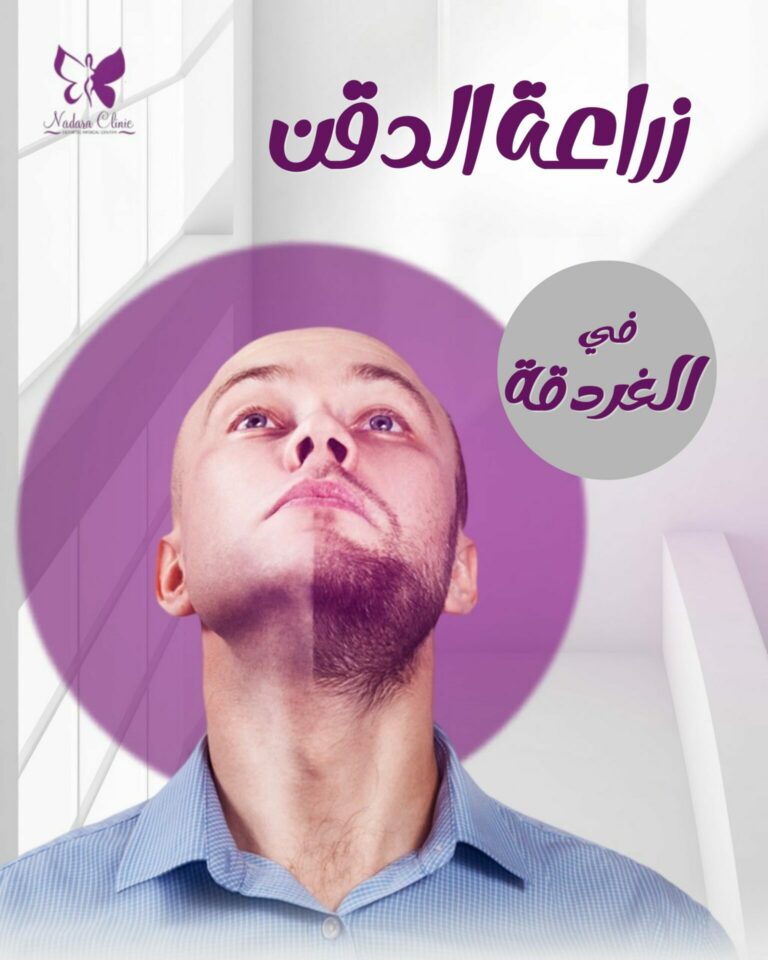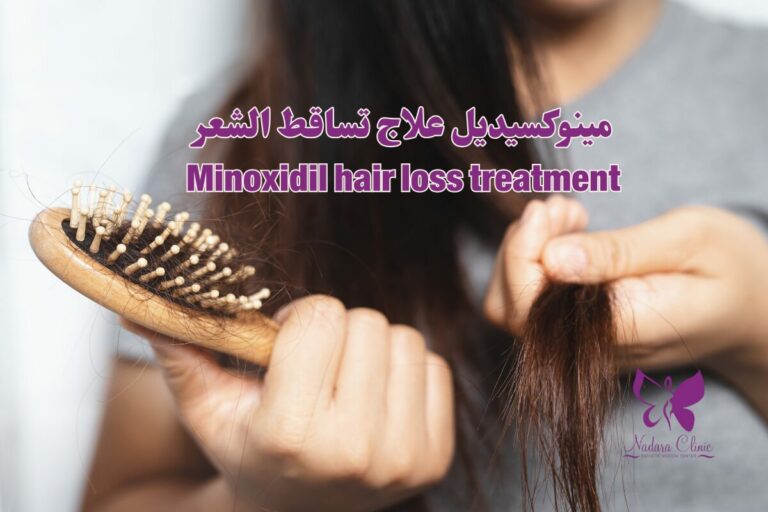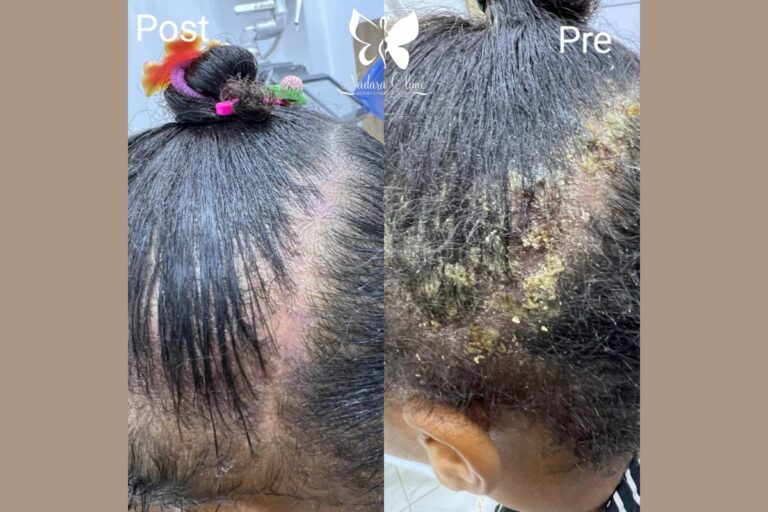If you feel embarrassed and insecure when dandruff appears on your head or on your clothes, we have the solution.
The dermatologist at Nadara Skin, Cosmetic and Laser Center in Hurghada treats this type of skin disease with the best modern medicines and treatments.
You can follow this article to find out the causes of the appearance of dandruff, and what are its symptoms? And how to get rid of them?
What is dandruff?
Dandruff is a common skin condition that affects the scalp - and it may itch - but it is not harmful.
Their appearance is not related to the number of times the hair is washed, but rather the health of the scalp where skin cells grow and die very quickly.
They are more noticeable, especially in dark hair, than in other hair colours.
Causes of dandruff
A very common fungus called Malassezia may contribute to dandruff, and it lives on the scalps of most adults.
There are many possible causes for their appearance, and stress or cold weather can also exacerbate symptoms.
And some recent studies indicate that this occurs as a result of the immune system's reaction to these fungi.
These scales range from small and white to large, greasy and also yellow.
The causes and symptoms are as follows:
| Possible reasons | Symptoms |
| seborrheic dermatitis | Scaly, itchy, red patches on the scalp, face, and other areas of the body. |
| Tinea capitis | Red or silver rash on the scalp, sometimes with hair loss |
| eczema | Dry skin, red, scaly, and itchy areas of the body. |
| Contact dermatitis | Red, irritated, inflamed skin. It may also have blisters and cracked skin from interactions with certain products such as hair dye, sprays, or gels. It may be the result of using unsterilized shaving tools. |
| psoriasis | Red, scaly patches that can be painful and the skin covered with silvery scales. |
| Birthing crusts (cradle cap) | They look like yellow greasy scales on the baby's scalp and eyebrows. |
| pink count | Redness and irritation usually affect the face, but can also involve the scalp and cause skin disorders and flaking. |
You can also read : Benefits of golden plasma for hair.
Infection risk factors
Anyone can get dandruff, but there are some factors that can make you more likely to get it, including:
- the age
Most people experience dandruff at some point in their lives, but it is more common, especially from the teenage years to middle age.
This does not mean that older people do not get it, and this problem can persist for life.
- sex
Dandruff is prevalent in males at a much higher rate than in females.
- Having some diseases
lead to infectionParkinson's diseaseAnd some other diseases that can affect the nervous system by increasing the risk of developing dandruff.
The incidence is also increased in the case of the human immunodeficiency virus (HIV).
dandruff for pregnant women
Its incidence can be increased due to fungal infections, and this condition is very common among pregnant women with a prevalence of approximately 50% women during this period.
There are some other possible causes of infection including:
- sensitive scalp
The scalp is sensitive and weak during pregnancy, so it increases inflammation as well as the irritation that follows dandruff.
- infection
Infection may occur as a result of Malassezia furfur infection.
- bile accumulation
Dandruff forms and is accompanied by itching on the scalp due to the accumulation of bile acid in the skin.
This may cause inflammatory particles to be released from the cells, causing skin irritation.
- Changes in hormone levels
Decreased blood flow can change the level of hormones and cholesterol in the body.
These changes are necessary for microbes to maintain and reproduce the skin, which causes scabs to form.
- Increase oil production
Pregnancy may be associated with increased oil production in the body, and oily skin attracts sebum-loving fungi, which leads to the appearance of dandruff.
- Use of skin irritating products
Skin can become irritated as a result of the constant use of some shampoos or conditioners, which promotes infection of the scalp and the formation of dandruff.
- Chronic metabolic disorder
It may be for metabolic disorders Detrimental effect on the sebaceous (oil-producing) glands, and this abnormal functioning of the glands contributes to the increase in dandruff.
- Polycystic ovary syndrome
In women with high production of the male hormone, fluid-filled sacs form inside the ovaries.
This condition also leads to an increase in the formation of dandruff in the hair.
You can also read : Mesotherapy for hair problems.
Permanent hair dandruff treatment
Dandruff treatments are ways you can get rid of or control itching and flaking.
The dermatologist at the Freshness Center for Dermatology, Cosmetics and Laser in Hurghada recommends following two basic steps: combing the hair, and using a shampoo suitable for your hair type.
Combing Hair
You can gently brush the hair from the scalp down, but in constant motions, this will move the oil away from the scalp.
Its accumulation, along with skin cells, can cause annoying dandruff.
Moving it along the hair strands helps keep your hair shiny and healthy.
dandruff shampoo
Not all shampoos compatible with dandruff are the same, as some of them contain different active ingredients and they are as follows:
- Coal tar preparations: Denorex (Neutrogena T).
- Zinc pyrithione, such as Selsun blue, is used for dry, itchy scalps.
- Salicylic acid and sulfur such as (Sebex), (Sebulex).
- Selenium sulfide (Danrex) for head and shoulders.
- Ketoconazole such as (Extena) and (Xolegel).
You may need to switch between shampoos as instructed by your dermatologist at a freshness center if one later loses its effectiveness.
And if you use a shampoo that contains coal tar, you will need to take special care of your hair.
Coal tar treats dandruff by making the skin cells on the scalp die and flake off more slowly.
But there are some necessary precautions when using it, and they are as follows:
- Some people have had an allergic reaction to this product.
- It can change the color of light hair, nails, skin, and clothing.
- It should not come into contact with any wound or skin infection, as well as the eyes.
- Products containing tar can make your skin more sensitive to the sun.
So you should avoid exposure to the sun for 24 to 72 hours after using it.
- It cannot be used by pregnant or breastfeeding women.
You can also read : Hair dye and its risks.
How to use anti-dandruff shampoo?
The dermatologist at Freshness Center for Dermatology, Cosmetics and Laser in Hurghada recommends that when washing hair with shampoo, follow some of the following tips:
- Scrub your scalp with shampoo well.
- Leave the shampoo on the scalp for 5 minutes.
- Rinse hair well with water, as any remaining shampoo may irritate the skin.
The frequency of using a dandruff shampoo can vary from once a day to several times a week.
You may be able to shampoo less once your dandruff is under control.
You can also read : Hair loss treatment.
Methods of prevention
Dandruff can be prevented by following some tips that contribute to preventing its appearance, including the following:
- Overcoming stress factors.
- Follow a balanced diet rich in minerals and vitamins for healthy hair and a clean, dandruff-free scalp.
- Maintaining a regular sleep cycle can help in having good immunity or better skin quality.
- Use a hair conditioner, as it keeps the hair moisturized, and also nourishes the scalp, thus preventing itching from dandruff.
- Follow a hair and scalp care routine. If you have an oily scalp, you can wash your hair daily to prevent dandruff.
- Don't get too exposed to the sun's harmful rays, which increases the risk of infection.
In conclusion, you can consult a dermatologist at Nadara Skin, Cosmetic and Laser Center in Hurghada to provide the appropriate treatment for your case after a medical examination and to find out the cause of the problem.






